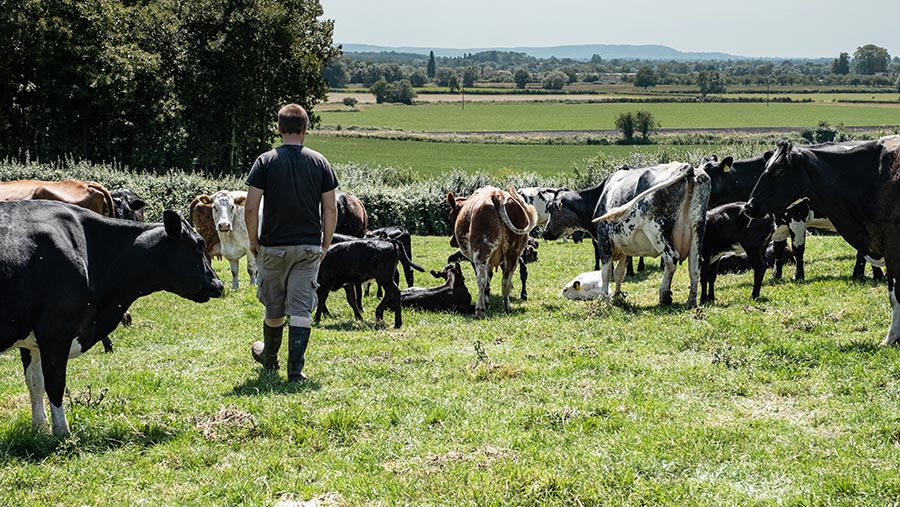Mental Health Awareness Week tackles loneliness in farming
 John/Adobe Stock
John/Adobe Stock Farmers are being encouraged to talk about their feelings of loneliness and build more meaningful connections with people to look after their mental wellbeing, as part of Mental Health Awareness Week (9-15 May).
Farming can be a lonely occupation that can involve working long hours alone and often in remote situations.
The recent Royal Agricultural Benevolent Institution’s Big Farming Survey, carried out by academics from Exeter University, linked loneliness to mental health issues such as depression, stress and anxiety.
See also: 9 ways farmers can improve their mental and physical health
Farmers told researchers that working long hours left little time for socialising, relaxing or spending time with their family – and this engendered a sense of loneliness that was linked to mental health problems.
The results also showed that young farming people are more likely to feel lonely and less likely to confide in others.
This week, several farming charities are raising awareness about loneliness and the impact this can have on the mental health of people living in rural communities.
Make time for a cuppa
Welsh agricultural mental health charity the DPJ Foundation is encouraging communities to come together this week to combat loneliness and connect over an afternoon tea.
“Loneliness is a feeling that we will all experience at some point during our lifetimes,” said Kate Miles, the charity’s manager.
“We can experience it at any time, and we don’t have to be alone to feel lonely. Feeling that you are not understood can lead to feeling lonely and isolated and, unfortunately, many farmers in Wales today feel they are not appreciated.”
Ms Miles said the DPJ Foundation Afternoon Tea is a chance to bring people together, enjoy a cup of tea and a cake while having a chat and catching up and, at the same time, helping beat loneliness.
“You can support the farmers in your area by buying Welsh eggs, butter and milk as well as flour from your local shop to show your appreciation and even give them some cake or invite them for a cuppa,” she added.
Community and connection
The Yana (You Are Not Alone) charity says two factors can help protect people in rural communities against loneliness: community and connection.
A Yana spokesperson said: “Take a few moments to consider where you find community and who are the important connections in your life. Be thankful for them and let them know you are thinking about them.
“Let’s all try to be more aware of those around us by checking in with each other and being ready to listen.”
On Twitter, the Farming Community Network (FCN) said Mental Health Awareness Week provides an opportunity for the industry to reflect on progress made and also consider work that needs to be done to normalise conversations around mental health and reduce stigma.
“There is a need for a ‘culture change’ in farming that not only permits farmers to feel they can take a break from work without fear of judgement, but actively promotes it as an essential part of successfully managing a farm business,” FCN tweeted.
“Taking a break from the farm or having a rest from work is not a waste of time. The truth is it’s one of the most productive things you can do.”
Farming mental health help and support services
The Farming Community Network runs a confidential national helpline (03000 111 999) and e-helpline, which are open every day from 7am-11pm.
“Share the Load”, The DPJ Foundation’s confidential 24-hour telephone (0800 587 4262) and text (07860 048 799) line, provides callers with access to Samaritans-trained volunteers who will listen without judgement and who can help.
You Are Not Alone (Yana) also provides a confidential helpline 0300 323 0400 or email helpline@yanahelp.org
Rabi freephone helpline: 0800 188 4444 or send an email to help@rabi.org.uk
Rsabi helpline for farmers or farmworkers in Scotland 0300 111 4166 or email helpline@rsabi.org.uk
